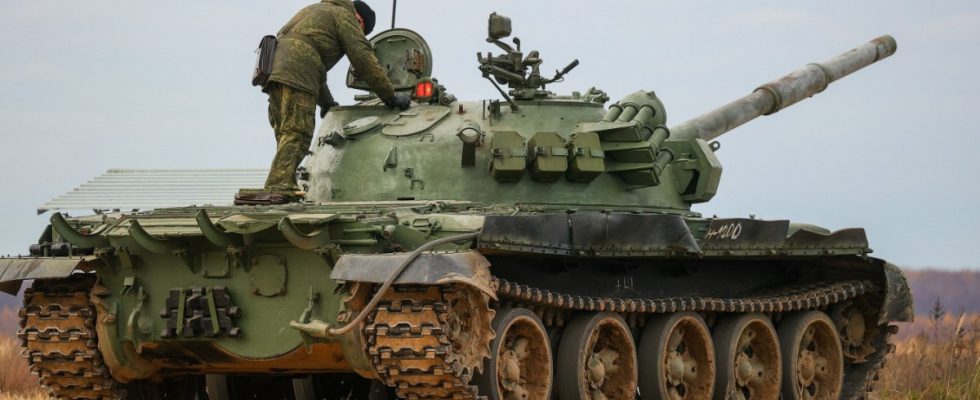Vladimir Putin has canceled another disarmament treaty with the West. Although Moscow has not adhered to the agreement on joint control of conventional armed forces (CFE) for years, Putin now wants to officially declare the treaty null and void. It is a step without practical consequences, but with symbolic power: Moscow wants to make it appear as if only the West is endangering Europe’s security. The State Duma is supposed to approve Putin’s decision, and the CFE treaty is on its agenda on Tuesday.
The situation cannot worsen if the contract is terminated, as the contract has “de facto not worked” for years, Russia’s Deputy Foreign Minister Sergei Ryabkov told the state newspaper Parliamentskaya Gazeta. At the same time, “the illusions of those who still hoped to be able to bring Russia back into the treaty would disappear.” Due to the changed situation, this is in contradiction to Russian security interests, according to Ryabkov.
This is not a new lawsuit. Moscow suspended the contract in 2007 and has not attended the meetings of the joint advisory group since 2015. The CFE treaty dates from the final phase of the Cold War. In it, members of NATO and the Warsaw Pact agreed in 1990 to reduce their huge arsenals of weapons. The treaty specified precise numbers: each bloc was to have no more than 40,000 main battle tanks, 60,000 armored vehicles, 40,000 artillery pieces, 13,600 combat aircraft and 4,000 attack helicopters, plus regional limits. The surplus weapons should be destroyed, inspectors check the progress.
Apparently Moscow was waiting for the right moment
But before the agreement came into force two years later, the Warsaw Pact had dissolved. Three former members joined NATO: Poland, the Czech Republic and Hungary. The conditions under which the treaty had been agreed suddenly no longer existed. To address the problem, CFE members made other agreements. For example, the former Soviet states shared their arms quota among themselves; even then there were initial discrepancies. In addition, during the first Chechen war in the mid-1990s, Moscow sent more tanks and artillery systems into its southern military districts than its regional limitations would allow.
At the end of the 1990s, the members negotiated an updated version of the contract. While Russia ratified the revised agreement, NATO members did not. They had made it a condition that Moscow first withdraw its troops from Georgia and Moldova, but the Kremlin refused. When the three Baltic states and Slovenia joined NATO in 2004, but not the CFE treaty, an agreement became even less likely. In 2007, Putin unilaterally suspended the contract, citing US plans for a missile shield in the Czech Republic and Poland as the reason for the move. It made no difference that Washington said it would ward off missile attacks from Iran or North Korea.
“Today’s decision is not propaganda,” said Gleb Pavlovsky at the time New York Times. Pavlovsky was considered an analyst close to the Kremlin, later became a critic, and has since died. “If today’s news is ignored, then the next step will be the Intermediate-Range Nuclear Forces Treaty,” he said in 2007. In fact, the INF Treaty is now out of force, and Putin has also suspended the New Start nuclear weapons control treaty.
But why has he only now terminated the CFE treaty, which has no effect on Russia anyway? They wanted to leave the door open for a restoration, Ryabkov claims in an interview, and wanted to give Western countries the opportunity to show “common sense.” Instead, they opted for “a confrontation with Russia.” As a specific reason for parting with the treaty, he cites Finland’s accession to NATO. It seems Moscow was just waiting for the right moment.

